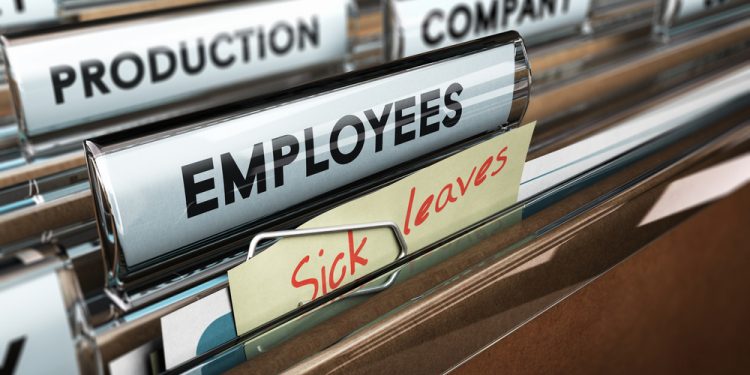Those aged between 50 and 64 are more likely to be absent from work due to ill health than younger age groups.
The Office of National Statistics’ sickness absence data — covering the period from 2018 to 2022 — shows this older age group are 125.9 per cent more likely to call in sick that the youngest age group (aged 16 to 24).
In total their figure show that the UK workforce loses on average 146.6 million days due to sickness, which equates to approximately 4.5 days per worker – or almost a full working week.
Employers tend to pay particular attention to absences at this time of year, as workers contend with flu season, as well as post-holiday blues and holiday-related illnesses.
The study found that workers aged between 50 and 64 lose more days at work than any other age group, with an average of 56.3 million total days lost per year. Per worker, this works out to approximately 6.1 lost days annually.
The 16 to 24 age group lost an estimated 10.2 million days per year – 65.2 per cent lower than to the average. This equals 2.7 days lost per worker each year.
Those in the 25-34 year age cohort lose an average of 3.4 days per worker per year, while those in the 35-49 year group lose 4.3 days on average. Those aged 65-plus who remaine in the workplace appear to be healthier than their slightly younger colleagues, losing 4.1 days per worker per year.
With regards to gender, women were found to call in sick for 2.6 per cent of their working days a year – which is a 49.4 per cent increase compared to men.
As well as looking at who reports the highest rate of sick leave, the study also identified the main reasons workers call in sick – with minor illnesses like coughs and colds proving the main cause. An average of 33 million days is lost per year due to minor illnesses.
This ONS data was analysed by personal injury experts Claims.co.uk. A spokesman says: “Sick days lost from work can have detrimental effects on both workers and the company. For employees, frequent absences due to illness can result in increased stress and workload upon return, negatively impacting their overall job satisfaction and well-being.
“From the company’s perspective, a reduction in workforce attendance can lead to productivity losses and delayed project timelines. Given the contagious nature of minor illnesses, it’s no wonder they frequently lead to sick leave as they can spread quickly. Many are also left particularly vulnerable when commuting on public transport to work.”





